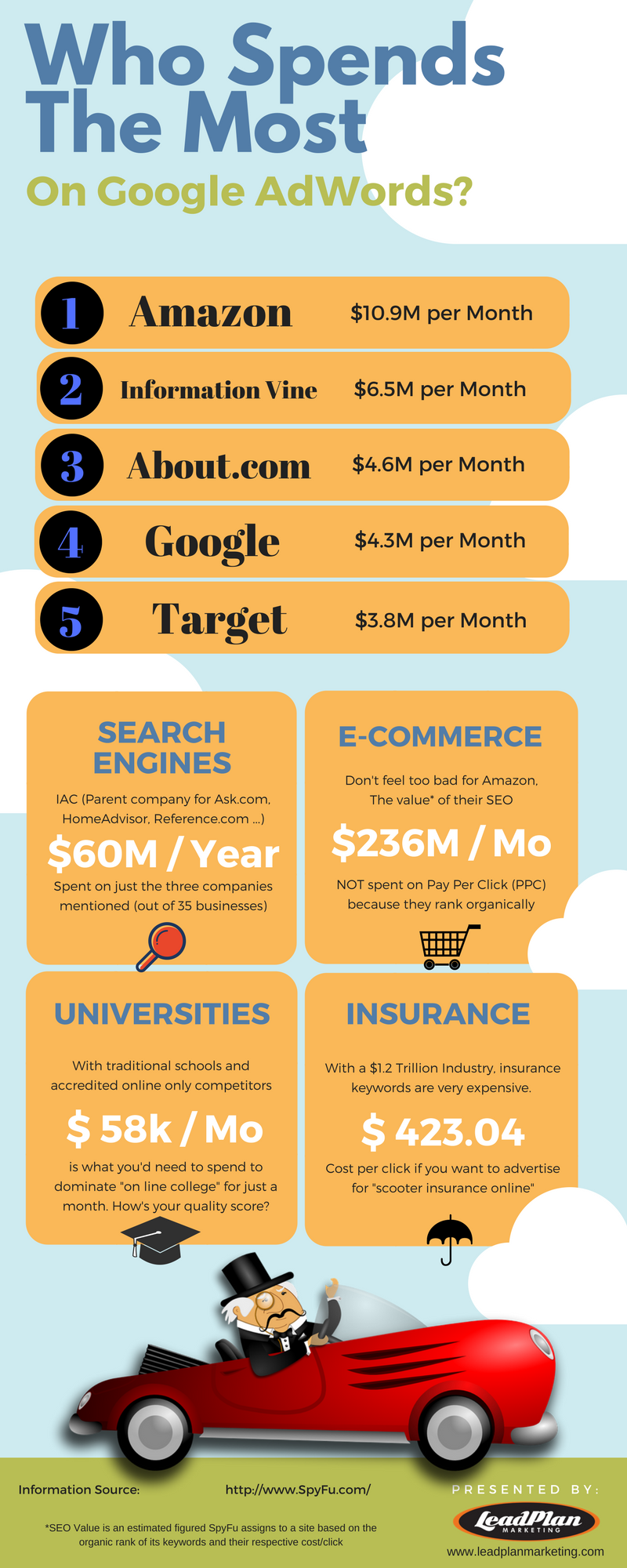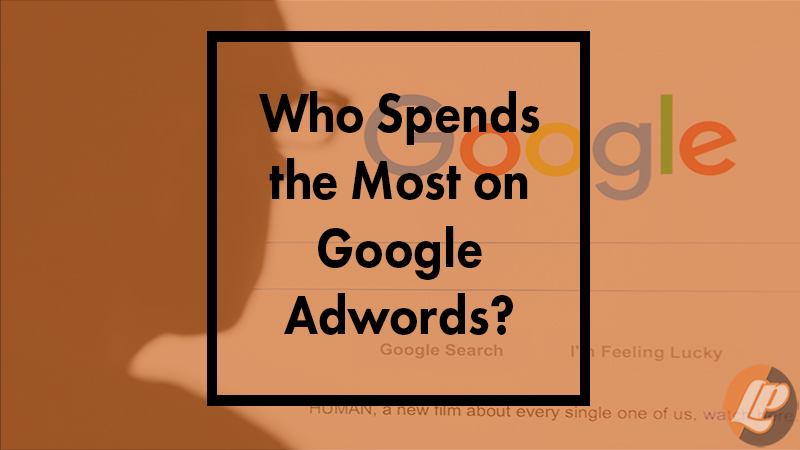And Why You Should Care…
Our research started with the top 100 companies by Google AdWords spending. We found that 95% of them are spending more than $700,000 a month in Pay-Per-Click (PPC) advertising. Additionally, 65% of these companies have at least an equivalent SEO value or better.
What do we mean by SEO value? SEO value is a metric created by SpyFu. It’s based on your keywords that rank in the top 50 of Google. Calculating your placement and the cost per click (CPC) of the words, value interpolates what you would have to spend on PPC to get those clicks. It’s also a great metric to compare your company with competitors.
So who’s winning?
The biggest winners in PPC clicks from their ads are e-commerce, search engines and the combination of the two. Case in point: Amazon. Their website functions as a search engine, e-commerce site, fulfillment interface, and publisher of books and digital media. Not only does Amazon also have PPC success, but their $236 Million a month SEO value and name recognition don’t hurt either.
What domains are the losers?
Let’s qualify “losing” as spending the most on PPC and have the lowest corresponding SEO value. To be fair, this isn’t necessarily losing if your cost per customer acquisition is low enough. Traditional search engines unsurprising top the list. They represent direct competition for Google and offer little to no content to rank organically with. Less traditional search engines that perform tasks like “find me this professional”, “this love match”, or “this DIY answer” usually fair better because they have content.

Also topping the list are universities and insurance companies. Painting with broad brush strokes, the keywords are expensive and difficult to rank for organically. Don’t despair if you are in these industries though. There are strategies for local SEO efforts, and “longtail keywords” that can help. We like to think of “longtail” in both senses of the word. Longtail can refer to less targeted words on a standard deviation bell curve, or longer search queries that are more specific.
Who pays the highest Cost-per-click? (CPC)
In economic terms, these companies have inelastic demand. Pretty much regardless of the price, someone in the industry will pay as long as the cost of acquisition is below the lifetime value of an acquisition. In both of these examples, keywords can even cost north of $400 per click.
- The $1.2 Trillion Insurance Industry has an average CPC of about $15
- Higher education, including universities, is a $107 Billion Industry with an average CPC of $10
Another Notable Giant
InterActiveCorp (also known as IAC) is a brand you may not have heard of that has been buying and selling the names in TV and internet that you have heard of. Some current examples include Vimeo, CollegeHumor, Ask.com, Dictionary.com, Investopedia, Match.com, Tinder, HomeAdvisor, and more.
Three of their 35 current businesses rank in the top 100 spenders on Google AdWords for a combined trio total of about $5 Million a month or about $60M a year. The entire company has been estimated to spend around $175 Million annually on PPC. You might not think of many of their sites as search engines, but fundamentally that’s what they are.
Why Should You Care?
While you may not be one of these high-rollers in PPC, there are things you can learn from them. PPC is a great way to show up in search, especially if your site is new, redesigned, or competing in a difficult industry/market.
Balance your PPC efforts when possible with concerted SEO efforts. The traffic you get from organic search is traffic you don’t pay for. Be very intentional about your SEO and PPC efforts. Keyword and competitive research is an integral part of that intentionality.
LeadPlan Marketing specializes in research-based marketing. We offer assistance to large companies and startups, both clients that need “autopilot”, and the do-it-yourselfers. No matter where you get your research and guidance – please take the time to be more intentional with your efforts.
See How You Can Beat Your Competition In Google PPC
